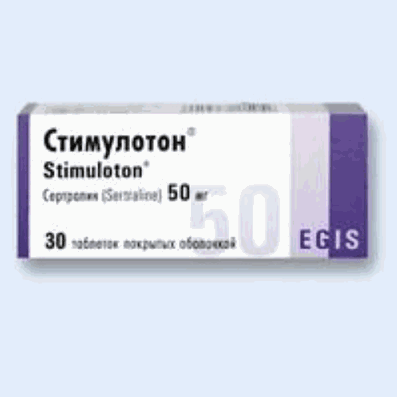Auditory hallucinations
27 Oct 2016
Neuroscientist said about the mechanisms of occurrence of hallucinations, the latest views on their nature and the use of neuro-imaging to study this phenomenon.
Hallucination - a perception in the absence of an external stimulus, which has the quality of a real perception. Hallucinations may occur at all levels of the senses: auditory, visual, tactile and even olfactory. The most common type of hallucination is a situation, when a person "hears voices". This is, so-called, auditory hallucinations. They often occur in psychiatric disorders such as schizophrenia. Hallucinations-level view also arise in connection with pathologies. Although schizophrenia are less common, visual hallucinations are often associated with neurological disorders and dementia.
Definition
Although auditory hallucinations are usually associated with psychiatric disorders such as bipolar disorder, they are not always associated with the disease. In some cases, hallucinations may be caused by lack of sleep. The extract of cannabis and stimulants can also cause disorder of perception in some people. Experimentally proved that sensory deprivation can also cause hallucinations. In 1960, experiments were conducted (which would now be not carried out for ethical reasons), during which people were kept in dark rooms without sound and sensory stimuli. As a result, people began to see and hear different things. So that hallucinations can occur in healthy people and in psychiatric patients.
Hallucinations research has been going on for quite some time. Psychiatrists and psychologists are trying to understand the causes and phenomenology of auditory hallucinations for about a hundred years, even longer. In the last thirty years we can use neuro-imaging to try to understand what happens in the brain when people are experiencing auditory hallucinations. Now we can use functional magnetic resonance imaging (fMRI) or positron emission tomography (PET), to be considered part of the brain that are activated when people are experiencing auditory hallucinations. These studies have helped psychology and psychiatry to develop a model of auditory hallucinations in the brain, mainly related to the function of language and speech.
The mechanisms of auditory hallucinations
Some studies show that when patients experience auditory hallucinations, hear voices that is, the site of the brain called Broca's area becomes more active. This zone is located in the lower front part of the brain responsible for speech production. When you say working Broca's area. One of the first who investigated this phenomenon were Professor Philip McGuire and Suha Shergil from King's College London. They showed that Broca's area was more active in their patients at a time when they experienced auditory hallucinations, than when they did not hear voices. This suggests that the auditory hallucinations produced by those parts of the brain that are responsible for speech and language. This led to the creation of "models of inner speech" auditory hallucinations. When we have something we think we reproduce inside it, that is the inner voice, "articulate" our thinking. For example, when we think, "What did I eat for dinner?" Or "What will the weather be tomorrow?", We generate and activate the inner speech Broca’s area .
Chris Frith and other scholars have suggested that when we enter into the process of thinking and inner speech, our Broca's area sends a signal in our auditory cortex area called "Wernicke's area". This signal contains information that we perceive it and generated by us. This is due to the fact that the signal supplied mutes cortical sensory nerve activity, so it is less activated than by external stimuli, such as what you someone says. This model is known as a model of self-monitoring, and it suggests that people with auditory hallucinations are deficient in the monitoring process, which is why they can not distinguish between domestic and external speech. Although at present the proof of this theory somewhat weak, it is definitely one of the most influential neurocognitive models of auditory hallucinations in the last twenty or thirty years.
For improvement neuro-cognitive functions in Russia we usually use Phenotropil, Semax, Cogitum and Selank. Also a new era of peptide complex has come – Pinealon forexample.
The effects of hallucinations
About 70% of patients with schizophrenia in one degree or another hear voices. Sometimes the voices "react" to the medication, sometimes not. Usually, though not always, the voices have a negative impact on the lives and health of people. For example, people who hear voices, but do not respond to treatment may be at risk of committing suicide. Sometimes the voices are calling them harm themselves. Even if the present domestic situation, we can understand how hard it is constantly hear voices saying derogatory and insulting things.
However, it would be an oversimplification to say that the only people with mental disorders suffer from auditory hallucinations. Moreover, these voices are not always negative. There is a very active "Society Hearing Voices" led by Marius Romm and Sandra Escher. This movement shows the positive aspects of the votes and fights with their stigmatization. Many people who hear voices, active and live a happy life. Therefore, we must be careful to assume that voice is always bad, because it is not. They are often associated with an aggressive, paranoid and disturbing behavior of the mentally ill, but this behavior can be the result of emotional distress, and not for the votes. Perhaps not so surprisingly, anxiety and paranoia, which are often the core of mental illness, manifested in the content of what people hear.
It is worth noting that there are a lot of people without psychiatric diagnosis, reporting that they hear voices. For these people, the voice can be a positive experience, because they soothe them, or even sent to a life. Professor Iris Sommer from the Netherlands studied this phenomenon. She found a group of healthy people, who hear voices. They describe their voices as being a positive, useful and gives confidence.
Treatment of hallucinations
People with a diagnosis of "schizophrenia" is usually treated with antipsychotic drugs. These drugs block the postsynaptic dopamine receptors in the brain area called the striatum. Antipsychotic drugs are effective for many patients. As a result, their use in psychotic symptoms somewhat weaker, particularly auditory hallucinations and delusions. However, the symptoms of many patients do not respond to antipsychotic drugs. Approximately 25-30% of patients, hearing voices, drugs have almost no influence. At antipsychotic drugs also have serious side effects, so not all patients with these drugs are suitable.
As for the other treatments, there are many non-drug intervention options. The degree of effectiveness also varies. For example, cognitive behavioral therapy (CBT) for the treatment of psychosis more controversial, since a lot of researchers believe that it has little effect on the symptoms and the overall outcome. There are types of CBT, designed specifically for patients who hear voices. These therapies usually focus on changing the patient's relationship to the voice that he was perceived as less negative and unpleasant. The effectiveness of this treatment in question.
At the moment I am study at King's College London, during which we will try to find out if we can teach patients to regulate neuronal activity in the auditory cortex. This is achieved by using "reverse neuronal communication with fMRI in real time." To measure the signal coming from the auditory cortex using MRI scanner. This signal is then sent back to the patient via a visual interface, which the patient must learn to control (i.e. to move the arm up and down). It is expected that we will be able to teach patients, hearing voices, monitor the activity of their auditory cortex, which may allow them to better monitor the vote. Researchers still are not sure whether this method is clinically effective, but in the next few months will already be available to some preliminary data.
The prevalence in the population
About 24 million people worldwide are living with a diagnosis of "schizophrenia", and about 60-70% of them at some point heard voices. There is evidence that 5 to 10% of people without a psychiatric diagnosis in some point of their lives heard voices. Most of us ever thought that someone calls us by name, and then it turned out that no one is near. So there is evidence that the hallucinations may be accompanied by schizophrenia and other mental illnesses. Auditory hallucinations are more common than we think, but to name the exact epidemiological statistics difficult.
The most famous person to hear voices, was Joan of Arc. From modern history we can recall Syd Barrett, founder of the group Pink Floyd, who suffered from schizophrenia and heard voices. However, many people with no psychiatric diagnosis hear voices, but take them very positively. They can draw in the voices of inspiration for art. Some, for example, are experiencing musical hallucinations. This may be something of a bright auditory images, and maybe they just kind of - these people are very clearly hear the music in my head. Scientists are not quite sure whether it is possible to equate to hallucinations.
Open questions
Science currently has no clear answer to the question of what happens in the brain when a person hears voices. Another problem is that researchers do not yet know why people perceive them as foreign, coming from an external source. It is important to try to understand the phenomenological aspect of what people feel, to hear the voice. For example, when people get tired or take stimulants, they may experience hallucinations, but not necessarily perceive them as coming from external sources. The question is why people lose their sense of self-activity, when they hear voices. Even if we believe that the cause of auditory hallucinations in the excessive activity of the auditory cortex, why did people believe them speaks the voice of God, or a secret agent, or aliens? It is also important to understand the belief systems that people build around their votes.
The content of auditory hallucinations and its source - another issue: whether these voices come from inner speech or whether it is stored memories? With confidence we can say is that this sensory experience includes the activation of the auditory cortex in speech and language areas. It does not tell us anything about the emotional content of these votes, which can often be negative. This in turn implies that the brain can cause a problem when processing emotional information. Furthermore, two people are very different experience hallucinations, which means that the brain mechanisms involved can be quite different.

 Cart
Cart





